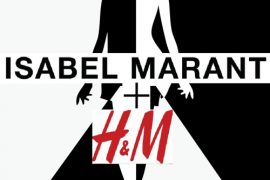Observing how a business model like direct-to-consumer can assist upcoming fashion brands in succeeding in the market.

It was with New York-based handbag label Mansur Gavriel that I experienced firsthand direct-to-consumer selling. The thought of purchasing a bag from a newly launched label at first seemed incredulous, but their immediate success was reassuring, to say the least. Despite the fact that their minimalistic bags are also on offer at several retailers (such as Net-a-Porter), the design duo also managed to sell directly from their website.
Applying the business-to-consumer (B2C) model proved to be successful for Mansur Gavriel. According to Lauren Sherman, most of the bags were sold out in an hour during the launch, with a lack of supply unable to meet the high demand. Not only did their simplistic campaigns and marketing approach accumulate a large following, but they are also known for their great customer service. All aspects of direct-to-consumer selling have worked in their favor, which signifies the benefits and importance of this business model for upcoming brands.
One of the advantages of the direct-to-consumer model is that it is cost-efficient, where selling directly to consumers can be cheaper than selling products through a wholesaler, as Robert Walters claims. Monogram, a new line launched by Lisa Mayock and Jeff Halmos, also operates on the B2C model. In an interview with the Business of Fashion, the New York-based duo claim that implementing this model has increased their profit margins and spend much less on costs, given that their line is only sold online.
Another advantage of direct-to-consumer selling is that brands are able to develop a relationship with their customers and know their feedback. For Mayock and Halmos, employing the model saved them the dilemma of having to undergo the process of asking the wholesaler what customers thought of their products: “In wholesale, you would ship to the store and it would be a game of telephone to find out what the customer liked or didn’t like,” says Mayock in the interview.
With the help of e-commerce, start-up brands would find it easier to offer their products immediately to their customers, while also accessing their data to know which products were highly demanded. Furthermore, applying an effective marketing strategy and creating a direct line of communication between the customers and the brand achieves productivity.
A result of implementing this strategy is that brands will have the potential to develop their business, create customer loyalty, and cutting down on costs, thus creating a stronger presence in the industry and establishing their target consumers with ease.
References:
- https://www.businessoffashion.com/articles/intelligence/direct-to-consumer-labels-sharpen-their-brands
- http://smallbusiness.chron.com/differences-between-b2c-b2b-business-systems-39922.html
- https://www.businessoffashion.com/articles/intelligence/mansur-gavriel-created-first-post-recession-bag
- https://www.robertwalters.co.uk/career-advice/b2b-vs-b2c-what-is-the-difference.html




Branding need to be brought anywhere
Presentation makes the overall content look good. I read it with full interest and I appreciate that you have shared with us. You should check some outfits for women at amazon.